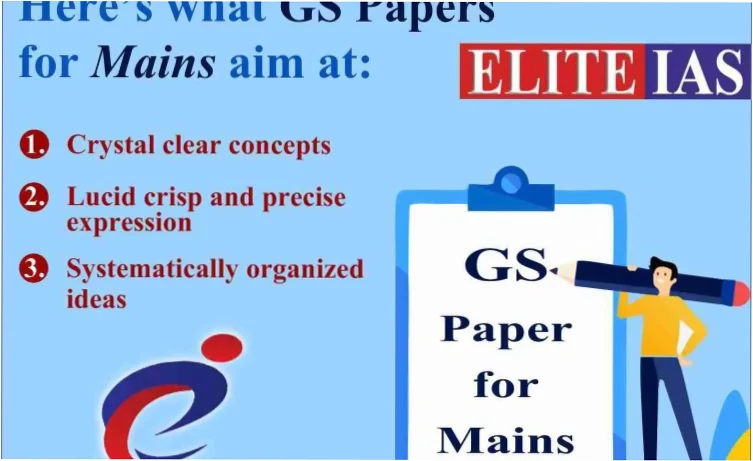
UPSC Exam Preparation Strategy: Below are seven practical exercises derived from stoicism to boost motivation during the UPSC preparation journey.
Preparing for the UPSC exam can be pretty intense. It’s all about competing at a high level, and sometimes, students forget to take care of their mental health. They’re so focused on doing well that they might not notice the stress piling up. But things are starting to change for the better.
The “Guidelines for Registration and Regulation of Coaching Centers 2024” have been introduced. These guidelines are making a big difference. Now, coaching centers are encouraged to really look after the mental health of their students. In Best IAS Coaching in Delhi it’s becoming a priority.
This shift is great news for everyone involved. It means students will be healthier, mentally. And when students feel good mentally, they tend to do better in their studies. It’s a win-win. The new approach is changing how coaching centers operate, making the whole preparation process more effective. Elite IAS Academy has even introduced it to their online coaching for UPSC program.
The UPSC exam is known for being uniquely challenging. It often leads to long stretches of doubt and questioning one’s abilities. The pressure from family and society doesn’t help. It can make stress and anxiety worse. What sets the UPSC apart is the long wait for results. This wait can stretch the anxiety even further.
The pressure to do well, without immediate feedback, can make things harder. It can lead to feelings of depression in some cases.
Many candidates feel less motivated at times during their study. They might feel bad about taking breaks or changing their study plans. The idea of being the perfect student adds to this pressure. This creates a cycle of negative feelings, known as the Emotional Drag Cycle.
Even though study materials for UPSC are easy to find online, staying motivated is still tough. The new guidelines recognize this. They suggest ways to stay motivated and strong. Stoicism, an ancient Greek philosophy, offers helpful tools for this. Stoics believed in controlling oneself to beat harmful emotions. This approach is very useful for UPSC candidates.
Here are seven stoic practices designed to help with UPSC studies. They aim to increase motivation and help candidates handle uncertainty.
Here are the key points:
1. Amor Fati – Embrace Your Fate:
UPSC aspirants should focus on the present, controlling what they can right now. This shift in focus helps in accepting things as they come. It lessens the mental burden of stress from things outside their control. This mindset fosters a healthier approach to dealing with external pressures.
By doing so, they can reduce the stress that comes from worrying about future results. Accepting and loving their fate aids in minimizing the impact of stress on their mental health. This approach encourages a positive attitude towards whatever challenges come their way.
2. Drawing inspiration from role models:
Candidates should pick a role model, someone they admire deeply. This person should be seen as an example to follow. Thinking about how this role model would handle similar challenges can provide valuable lessons.
In the next step, imagine the encouragement and tactics your role model might use. This process can help develop a mindset geared towards achieving success. By adopting the positive traits and strategies of their role models, aspirants can enhance their own approach to preparation.
This approach not only boosts self-confidence but also guides in forming a constructive outlook essential for success.
3. Celebrating small victories:
It’s key to acknowledge every step forward, no matter its size. Doing so builds a feeling of achievement and motivates further hard work. Rewarding oneself is also important.
Maybe it’s enjoying a favorite dish or engaging in a hobby. These treats offer essential breaks and renewal during intense study periods. Such practices inject joy and energy back into the preparation process, making it more sustainable and enjoyable.
Celebrating these victories, big or small, fosters a positive study environment. It reminds aspirants of their progress and keeps their spirits high.
4. Acknowledge discomfort and self-doubt:
It’s important for aspirants to see discomfort and self-doubt not as barriers, but as signs of growth. These feelings are part of the journey. Recognizing them shows a deep commitment to improving oneself.
By understanding these challenges as steps towards growth, aspirants can transform their mindset. This shift in perspective turns obstacles into opportunities for learning and development.
Embracing these emotions demonstrates a strong dedication to both personal and professional advancement. It’s a crucial strategy for navigating the demanding path of UPSC preparation. This approach helps build resilience and a positive attitude towards overcoming hurdles.
5. Practicing Gratitude:
It’s beneficial to pause and consider the good things in life. This practice helps build a broader outlook and strengthens resilience. Being thankful nurtures a hopeful viewpoint.
Aspirants should regularly remind themselves of what they’re grateful for. This habit encourages a positive frame of mind. It supports ongoing motivation, even when times get tough.
By valuing gratitude, candidates can maintain a steady drive towards their goals. This positive approach aids in navigating challenges with a lighter heart. It’s a key element in keeping spirits high throughout the UPSC preparation journey.
6. Cognitive Dissonance – Stay away from the UPSC Fantasy:
A big difference between what you expect and what’s real can cause mental strain. For instance, comparing yourself to an ideal topper or your planned study timeline with your actual progress. This comparison can make your self-doubt and inner criticism grow.
It can lead to a cycle of negative thoughts that’s not just harmful but also distracts you from your goals. Recognize that the journey of UPSC prep is rarely perfect.
Ideal schedules, always hitting deadlines, and predictable outcomes are myths in the UPSC world. Accepting this reality helps reduce the gap between expectation and reality. It lessens the mental discomfort and keeps you focused on your actual progress.
Acknowledging the imperfections in preparation strategies can actually be liberating. It allows you to adjust more realistically to the demands of the exam. This understanding is crucial for maintaining mental well-being and staying on track with your studies.
7. Mindfulness and Meditation:
Practicing mindfulness and meditation can be transformative. These techniques help in staying present and focused. They allow aspirants to manage stress effectively. By being mindful, you engage deeply with the current moment. This can significantly reduce anxiety about the future.
Meditation, on the other hand, offers a way to calm the mind. It teaches you to observe thoughts without judgment. This skill is invaluable during intense study periods.
Incorporating these practices into daily routine can enhance concentration. They also improve overall well-being. Aspirants find it easier to navigate the ups and downs of preparation with a steadier mind.
Mindfulness and meditation are not just practices but essential tools. They provide a sanctuary of peace amidst the chaos of UPSC preparation. Adopting these habits can lead to a more balanced and focused approach to studying.
In conclusion, getting ready for the UPSC exam is more than just learning facts. It’s a deep dive into knowing oneself and building strength. Recognizing the hurdles of this journey and using effective methods to care for your mind is key. This approach lets candidates move through the highs and lows with assurance and resolve.
We’re becoming more aware of how crucial mental health is for doing well in studies. These efforts highlight our dedication to a well-rounded educational experience and the well-being of students.
By focusing on mental health, we’re not just aiming for academic success. We’re also fostering a supportive environment that values personal growth. This commitment reflects a broader understanding of education. It’s one that embraces the whole person, not just their intellect.


